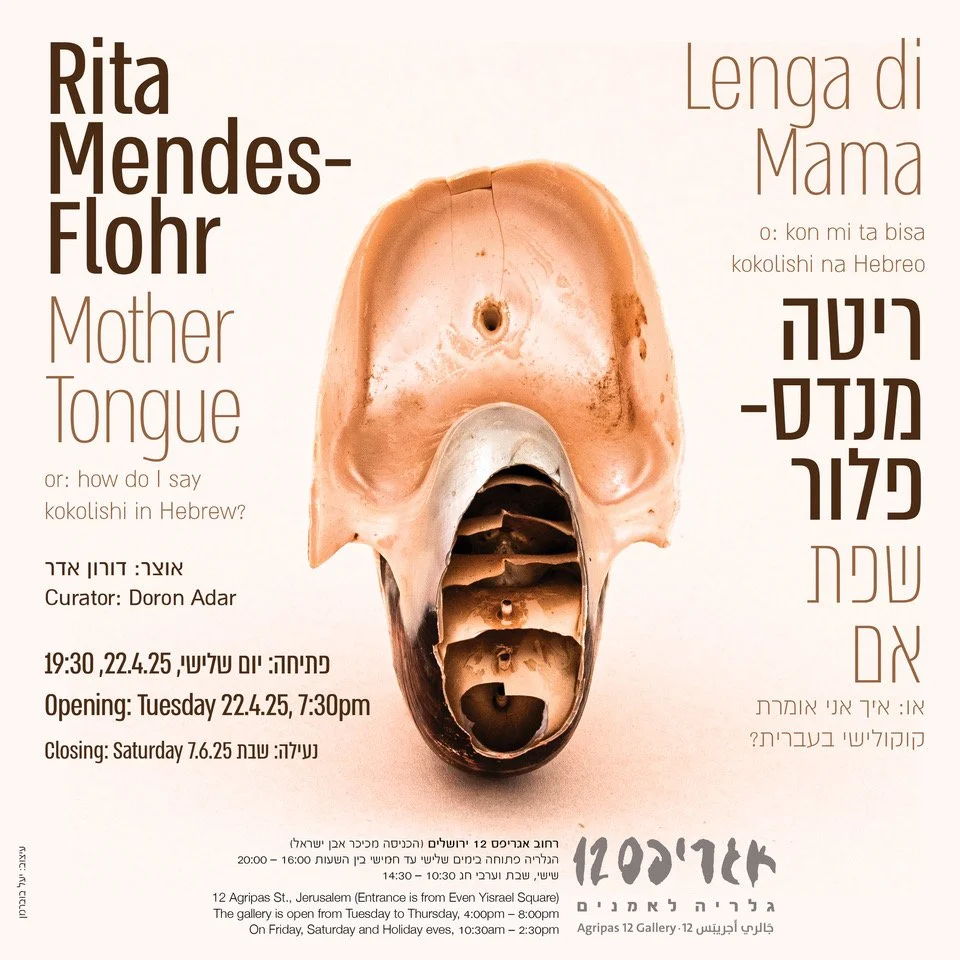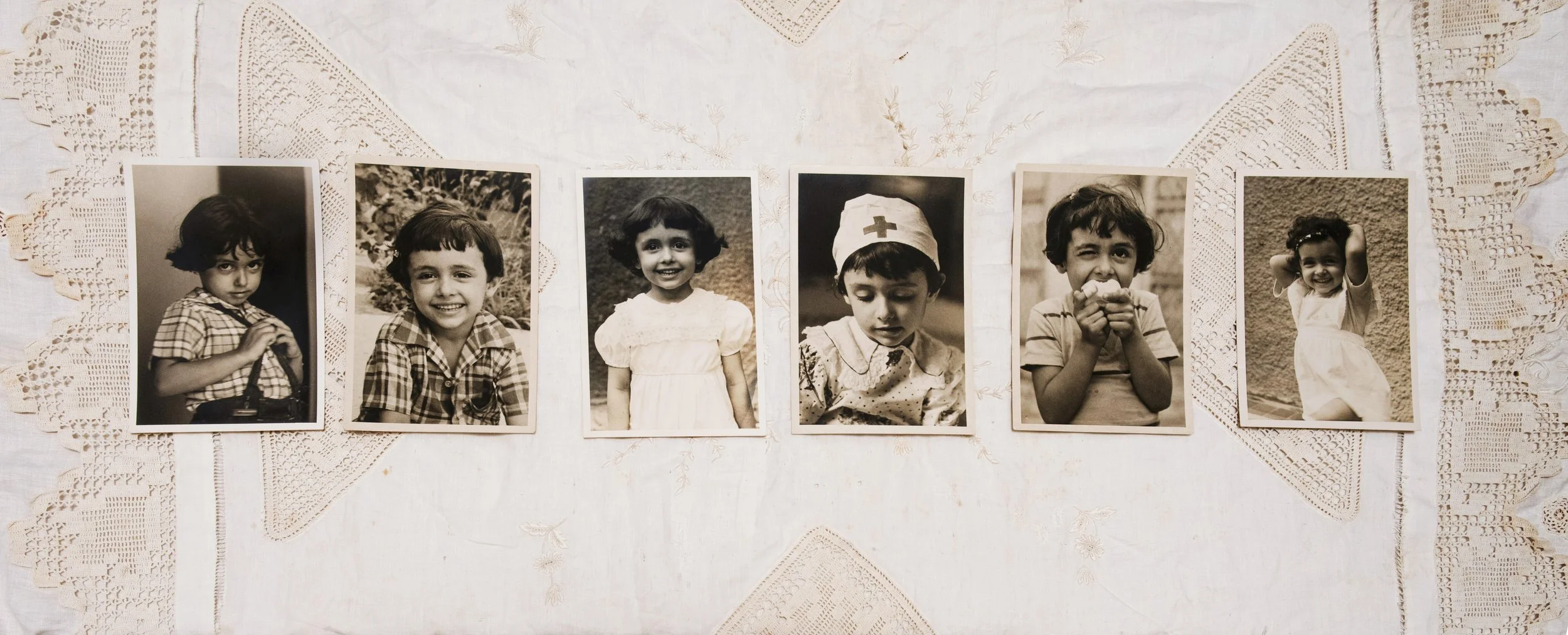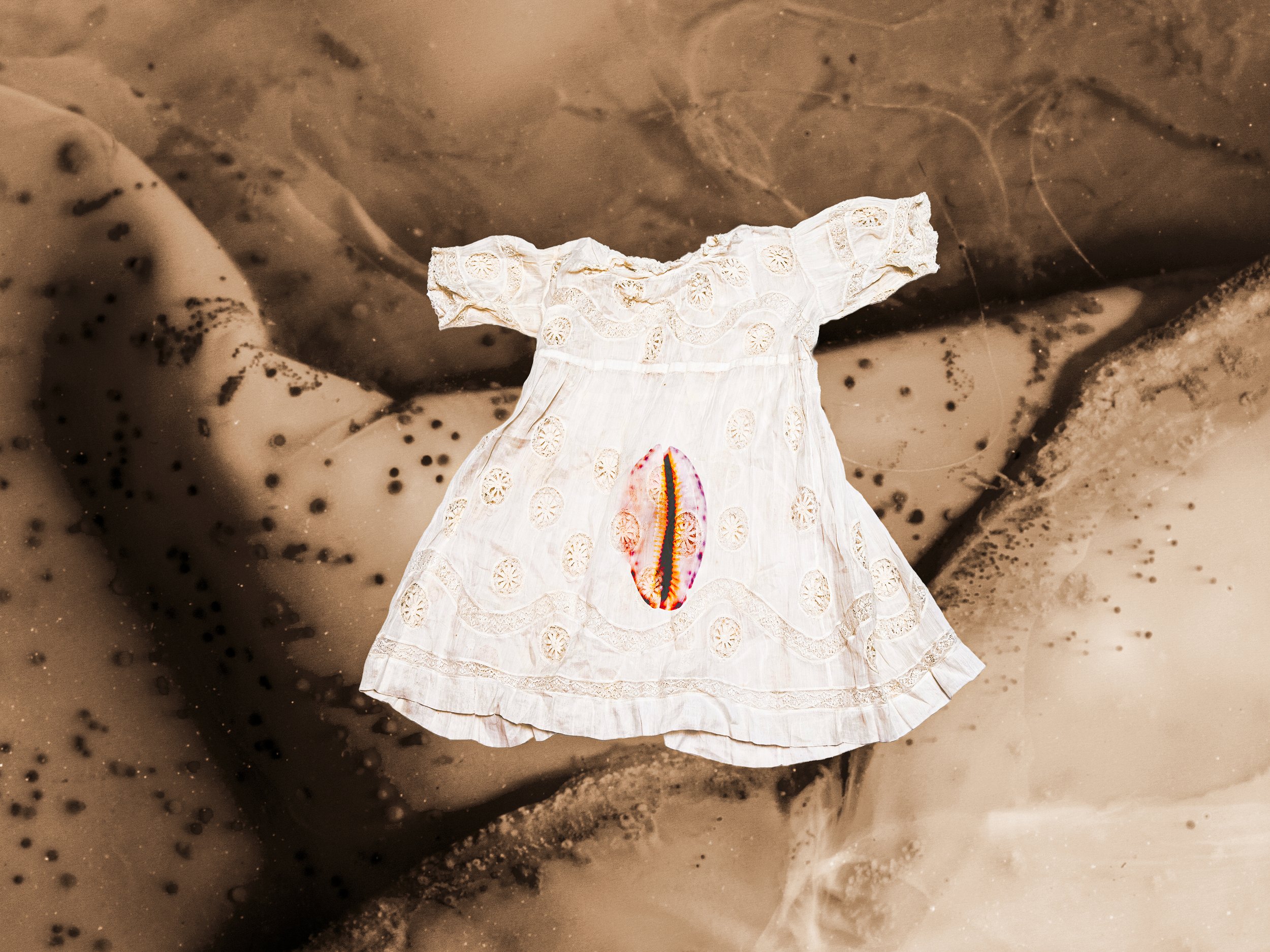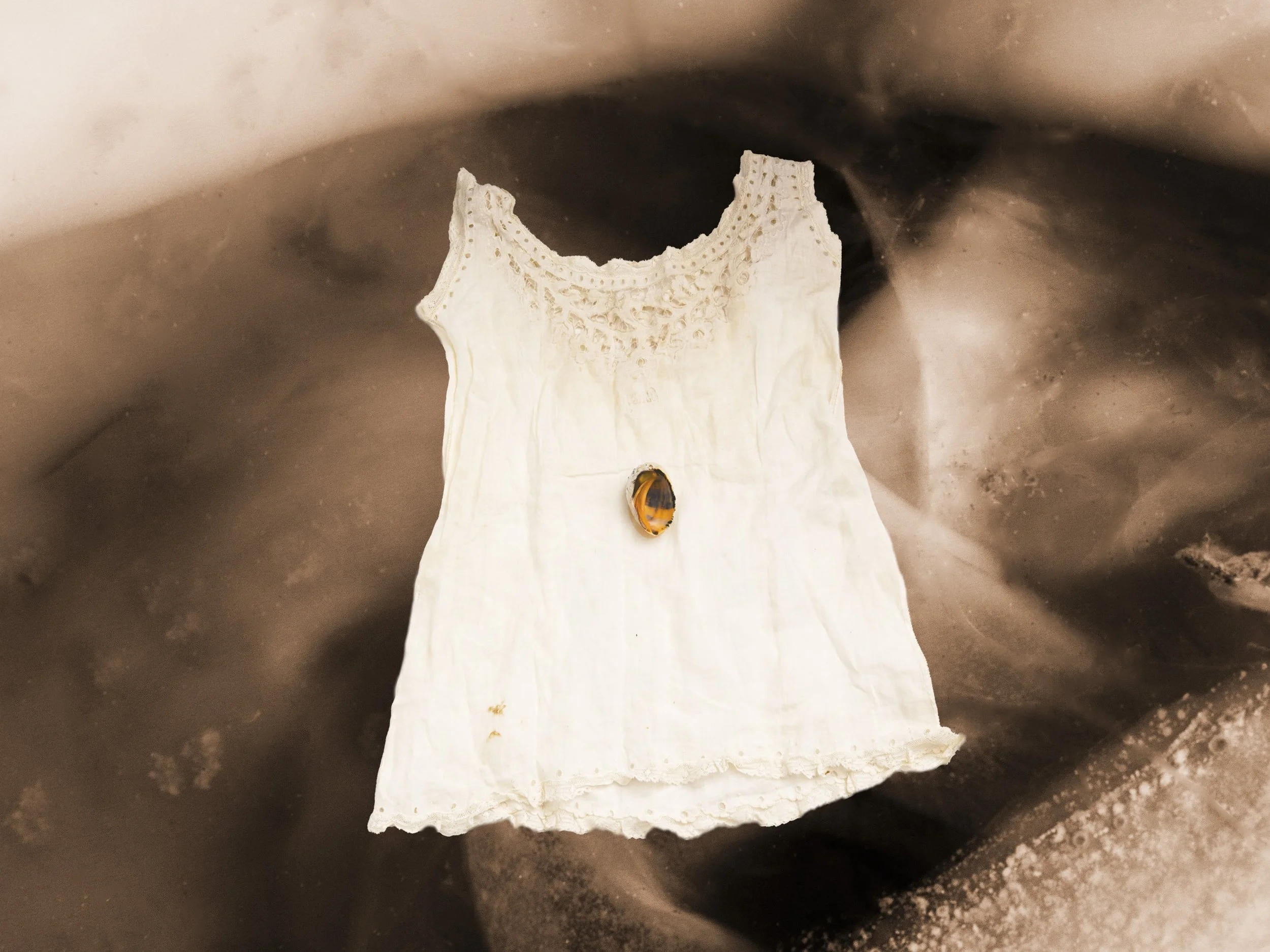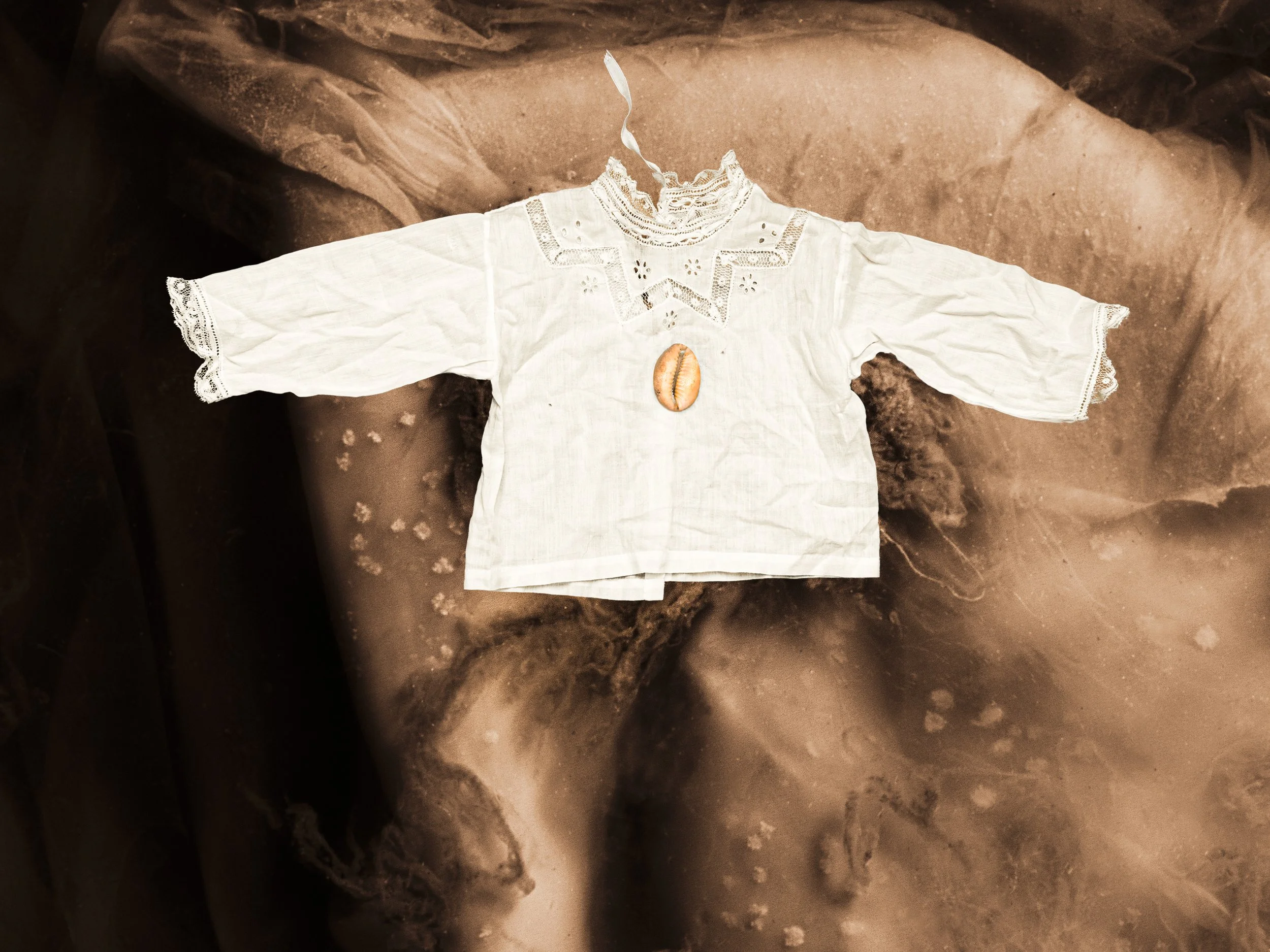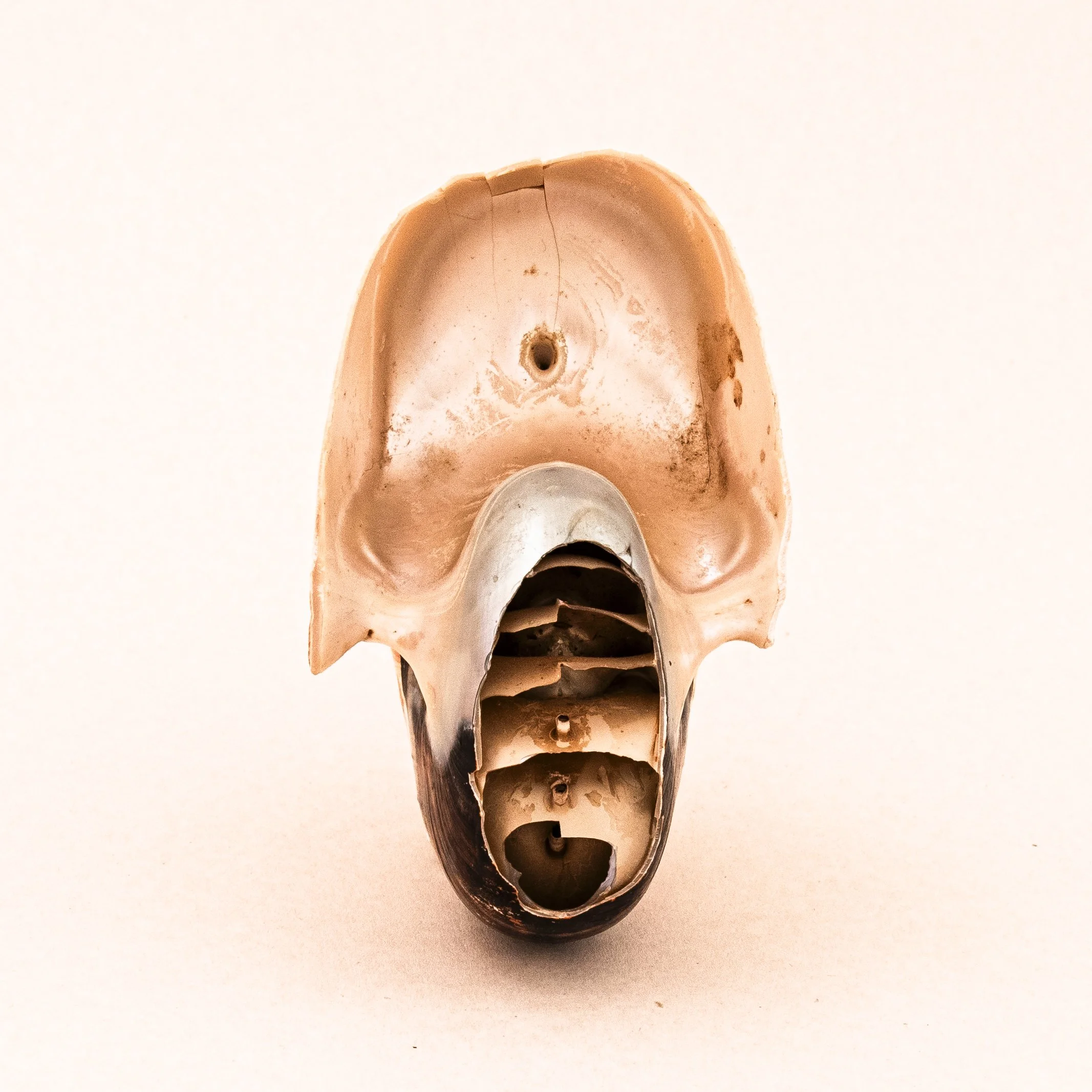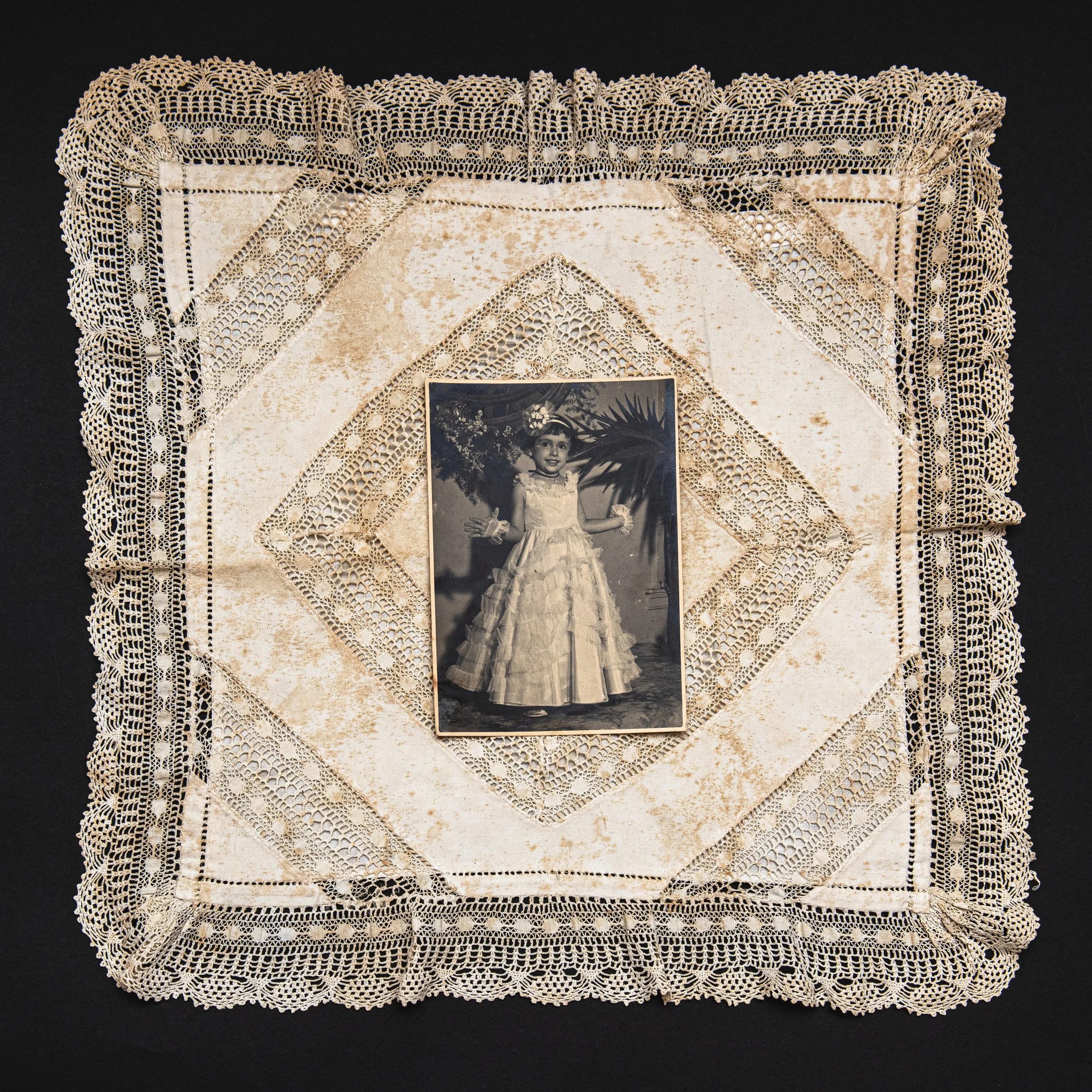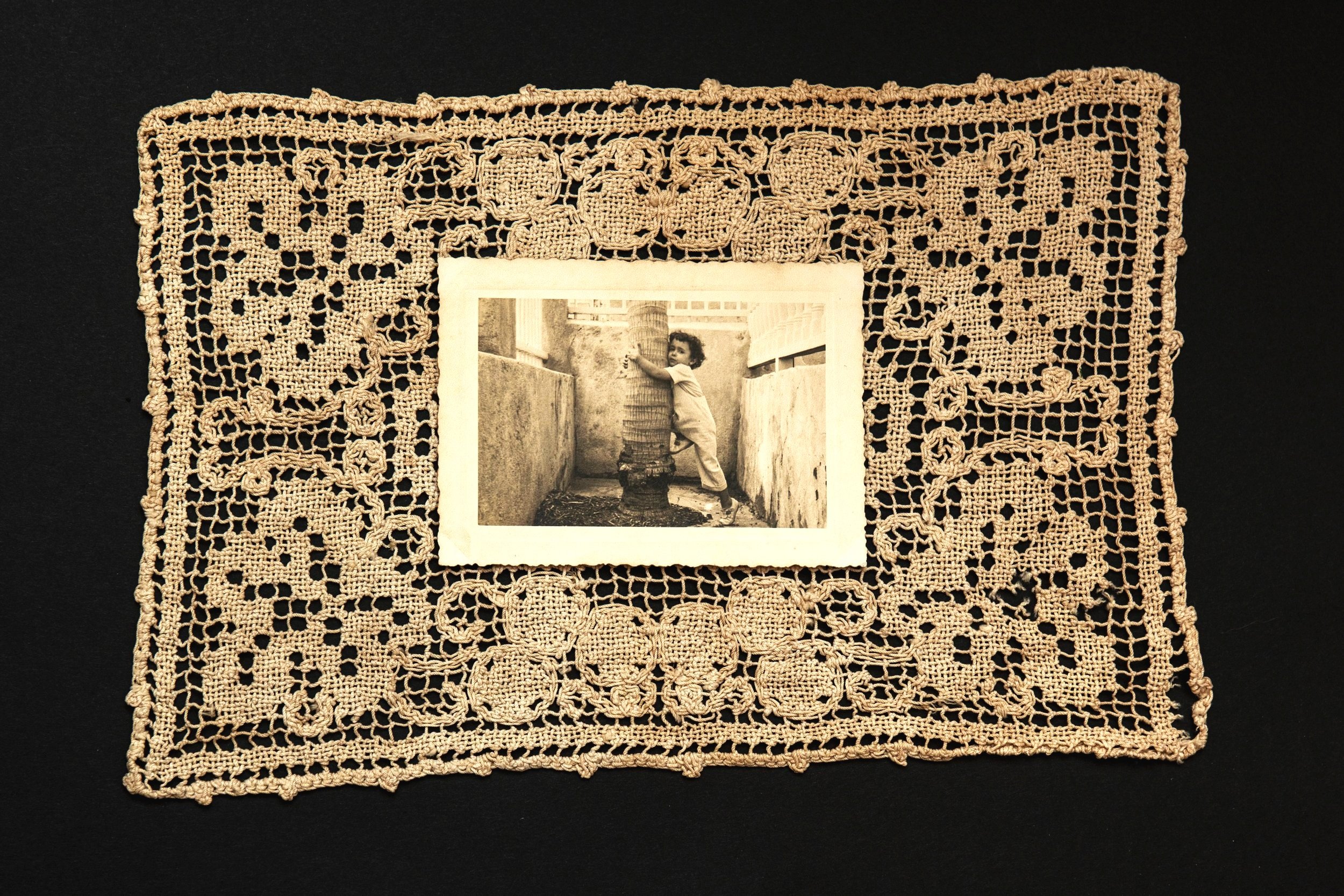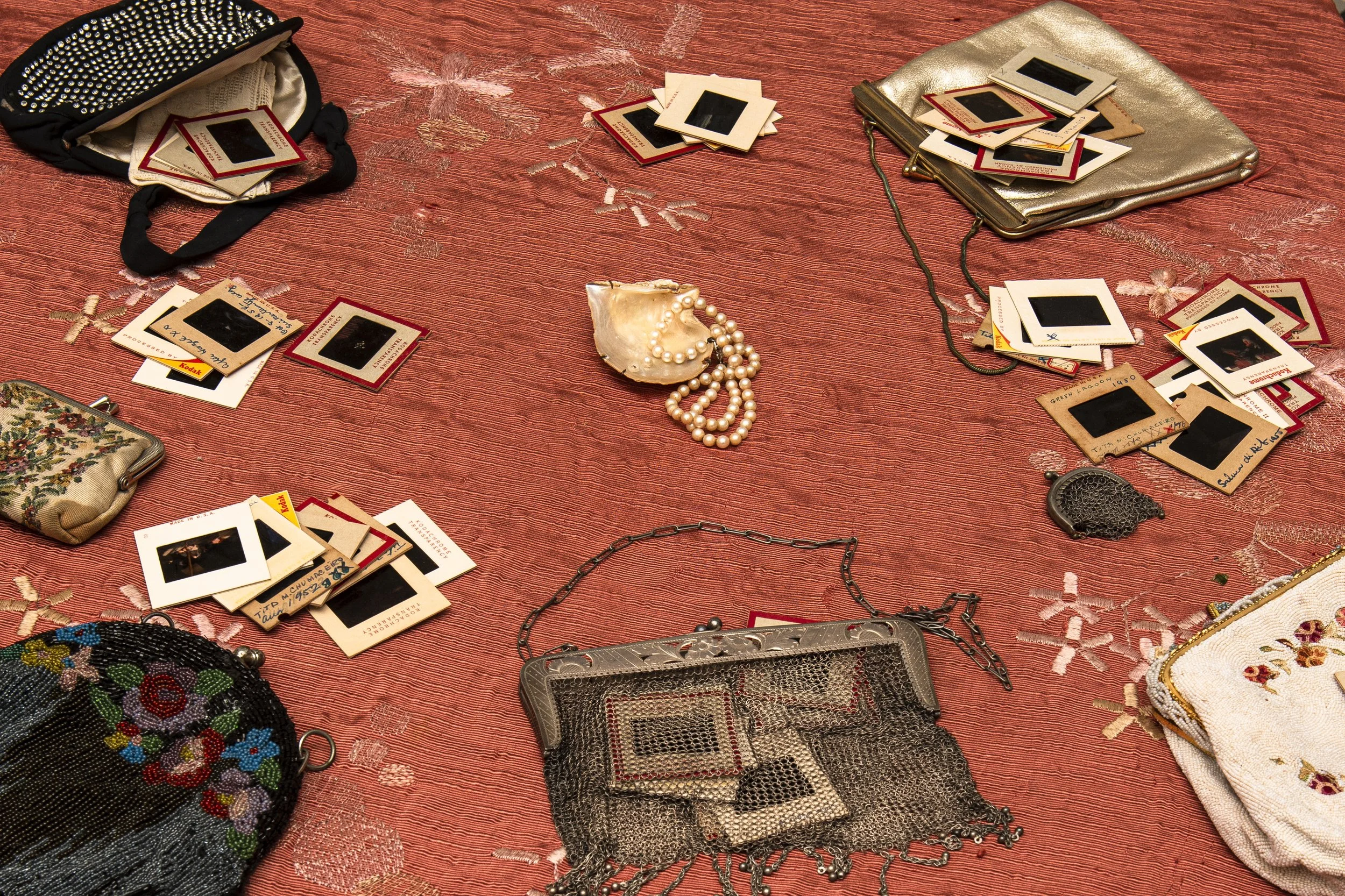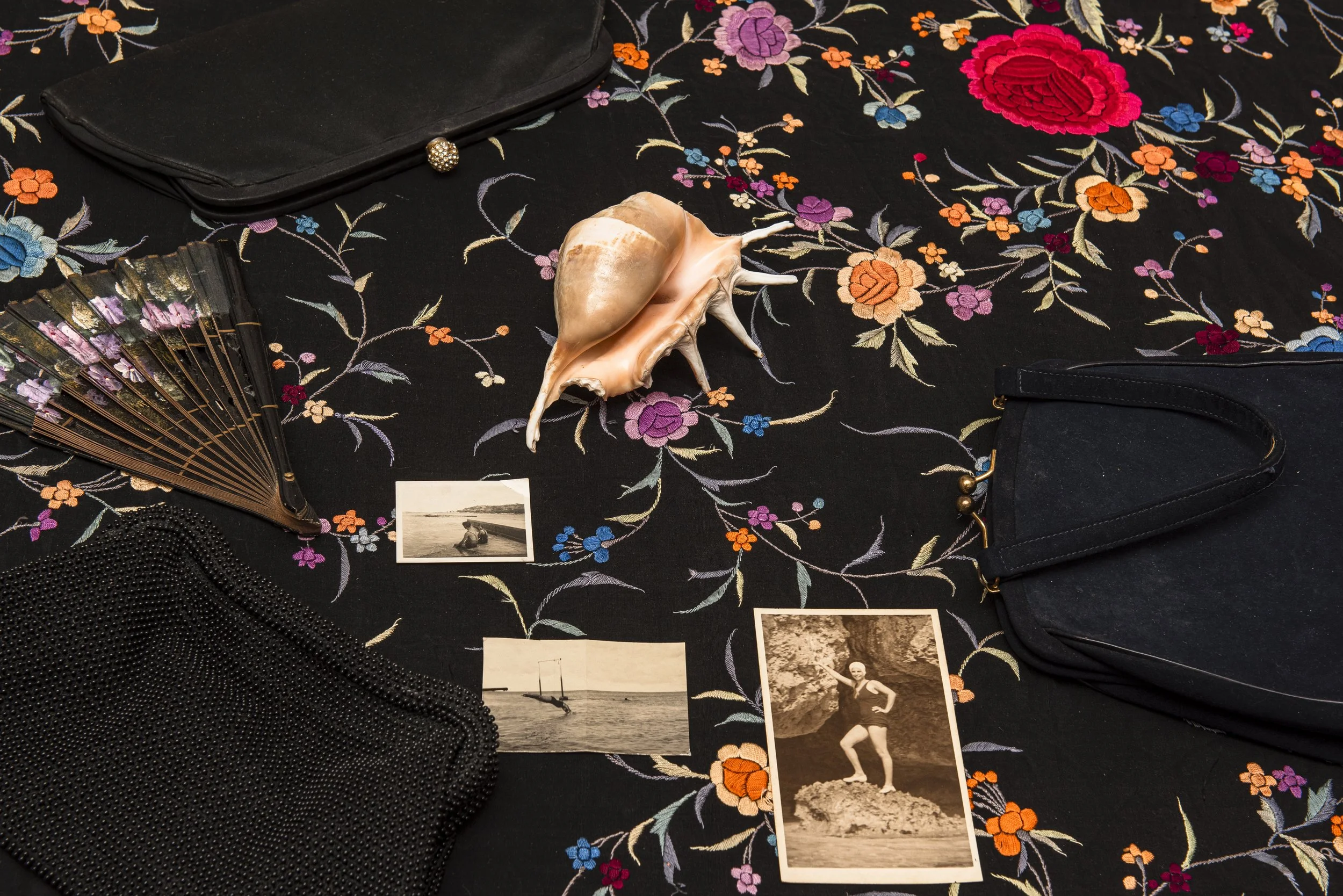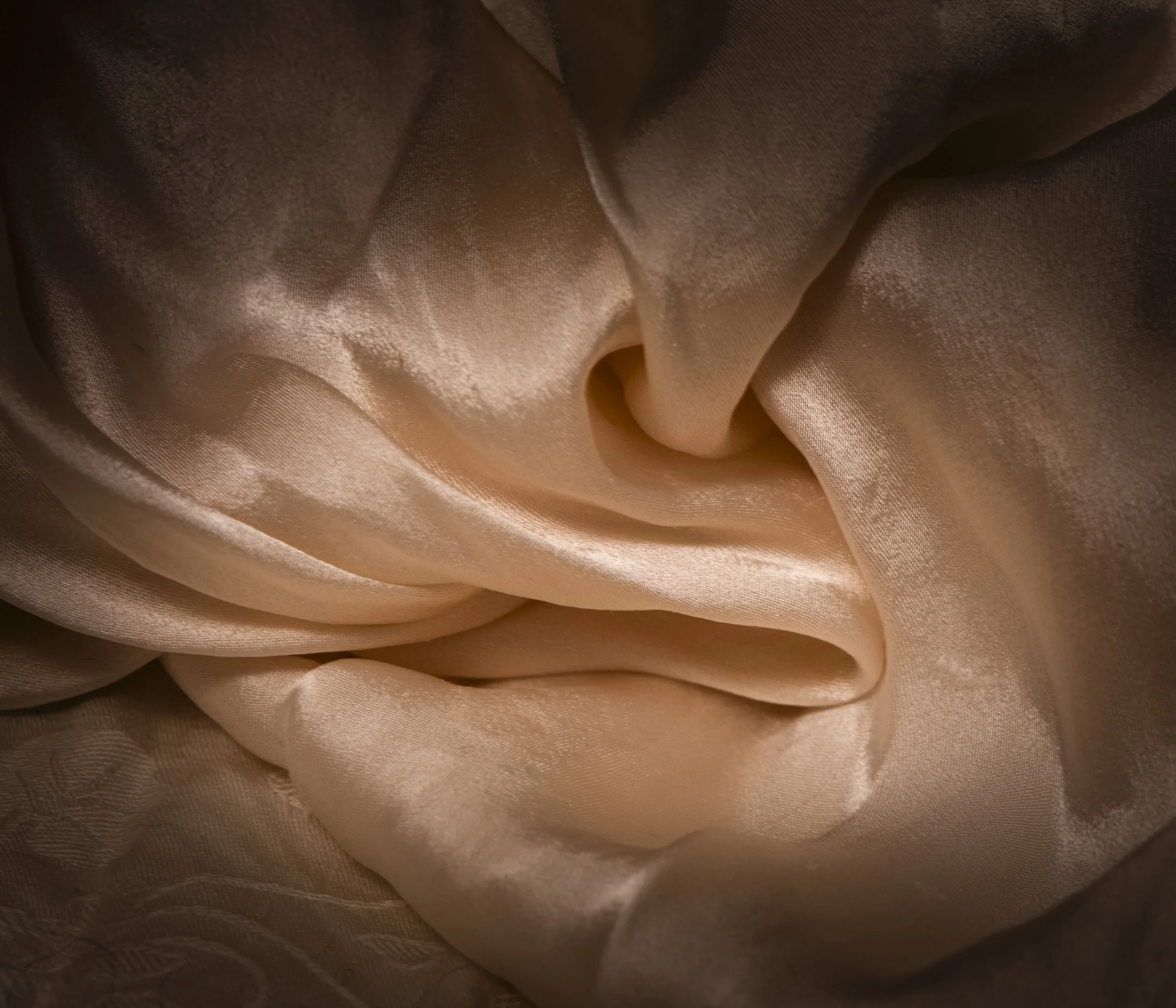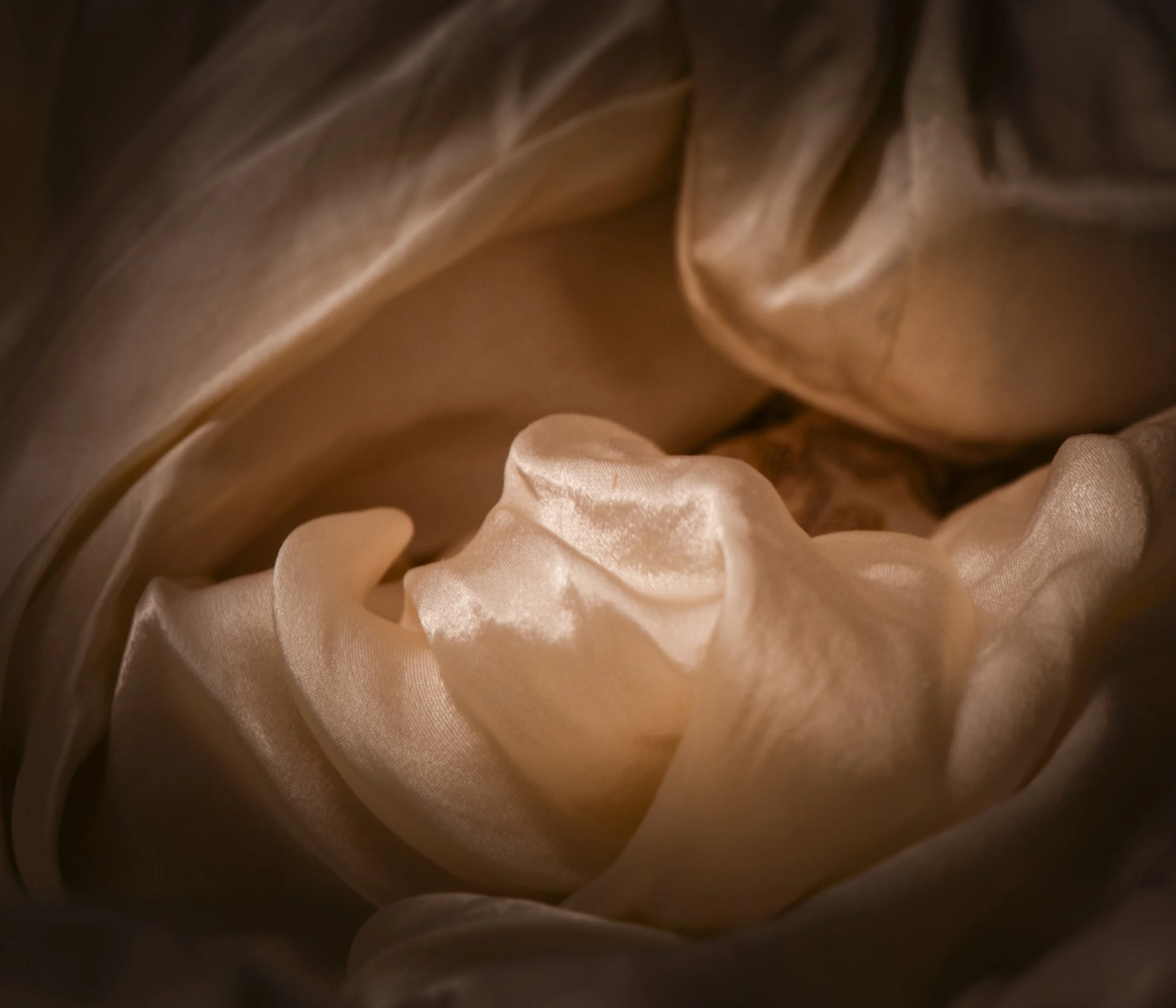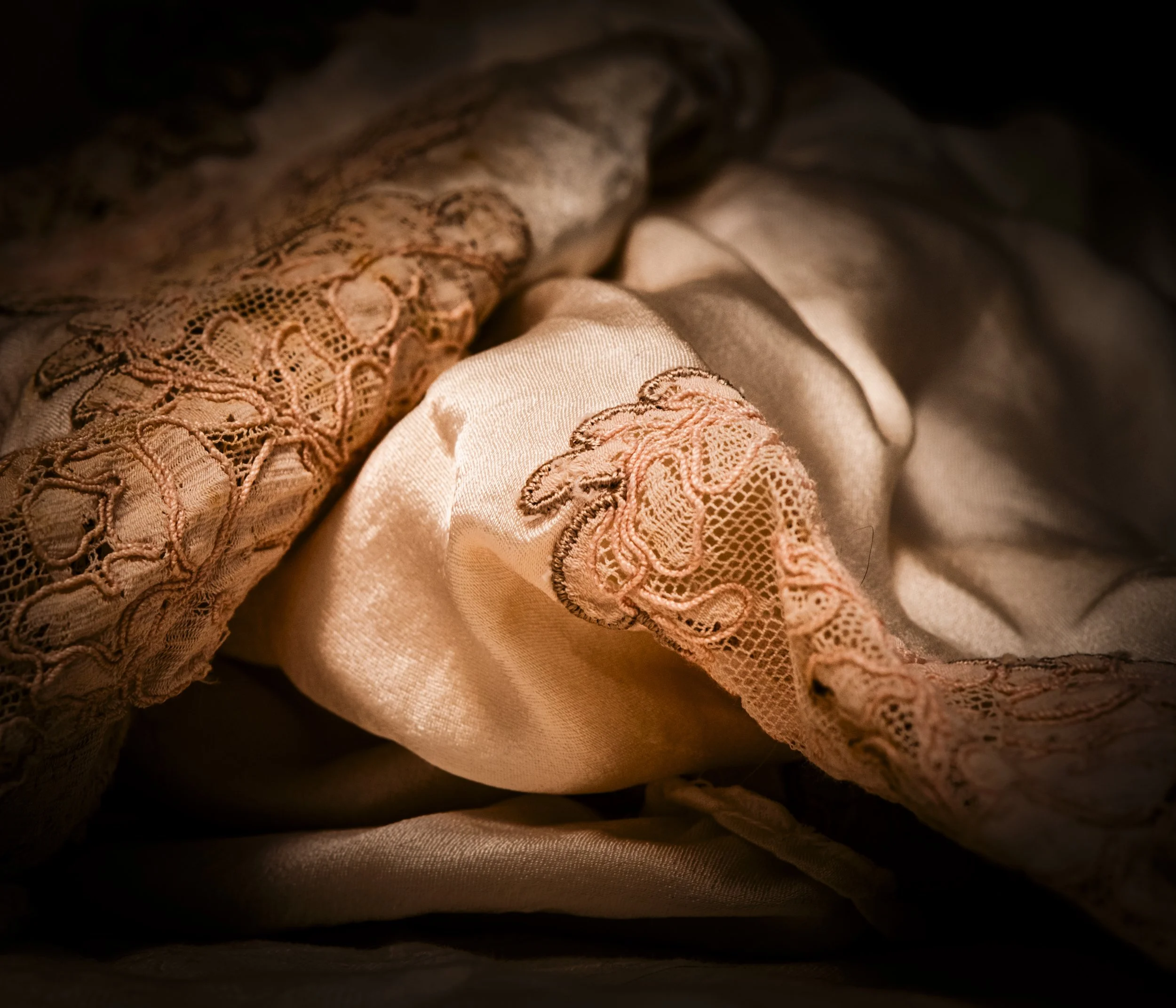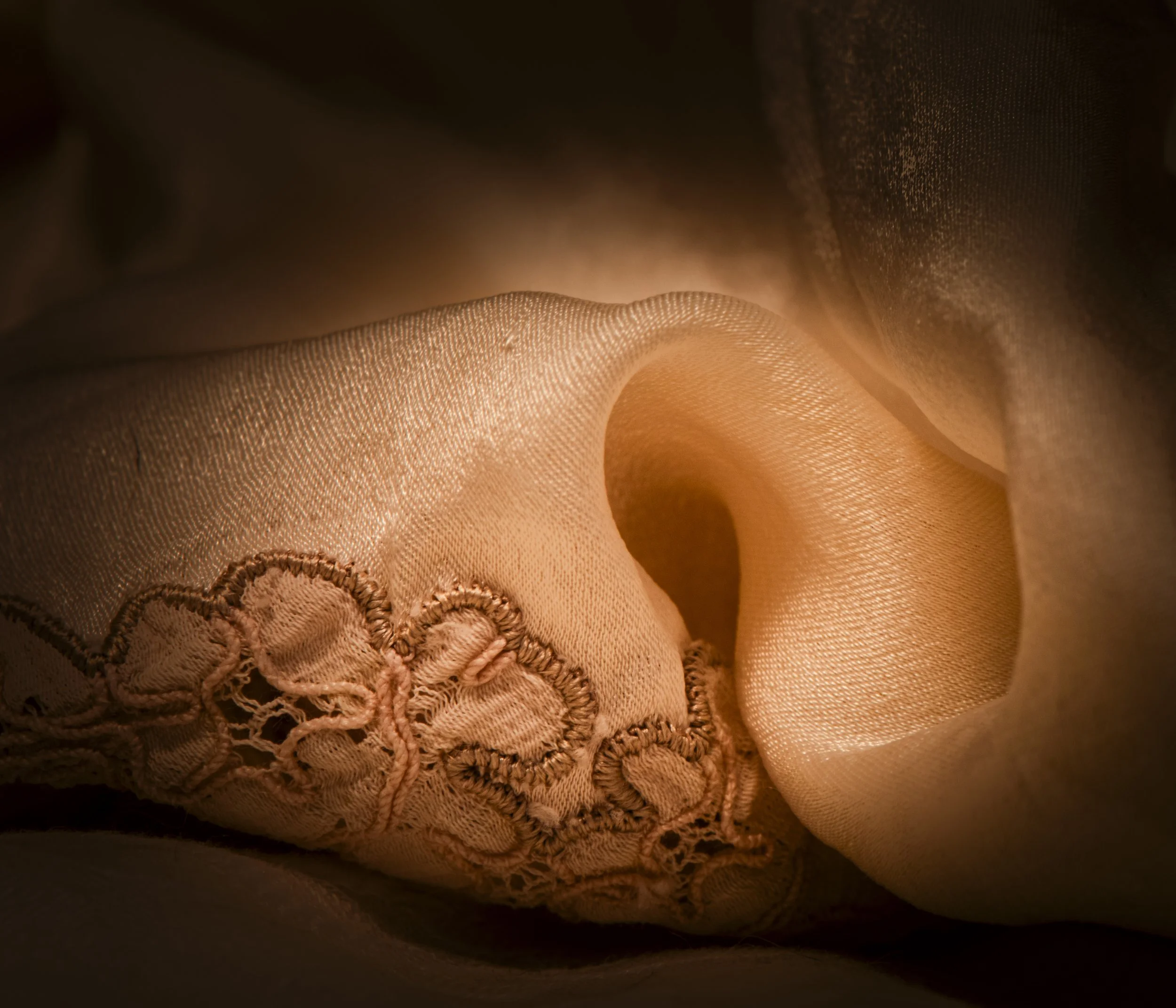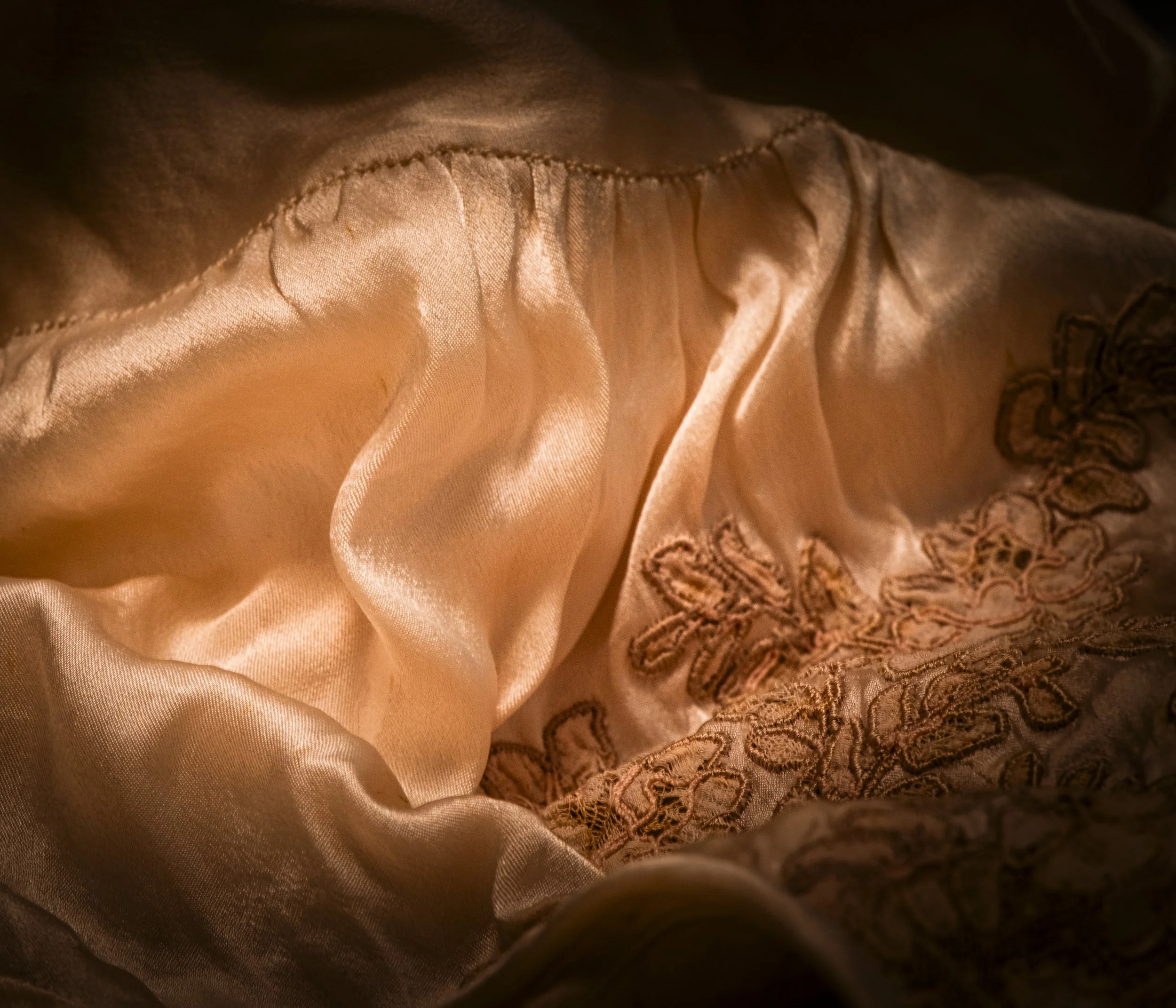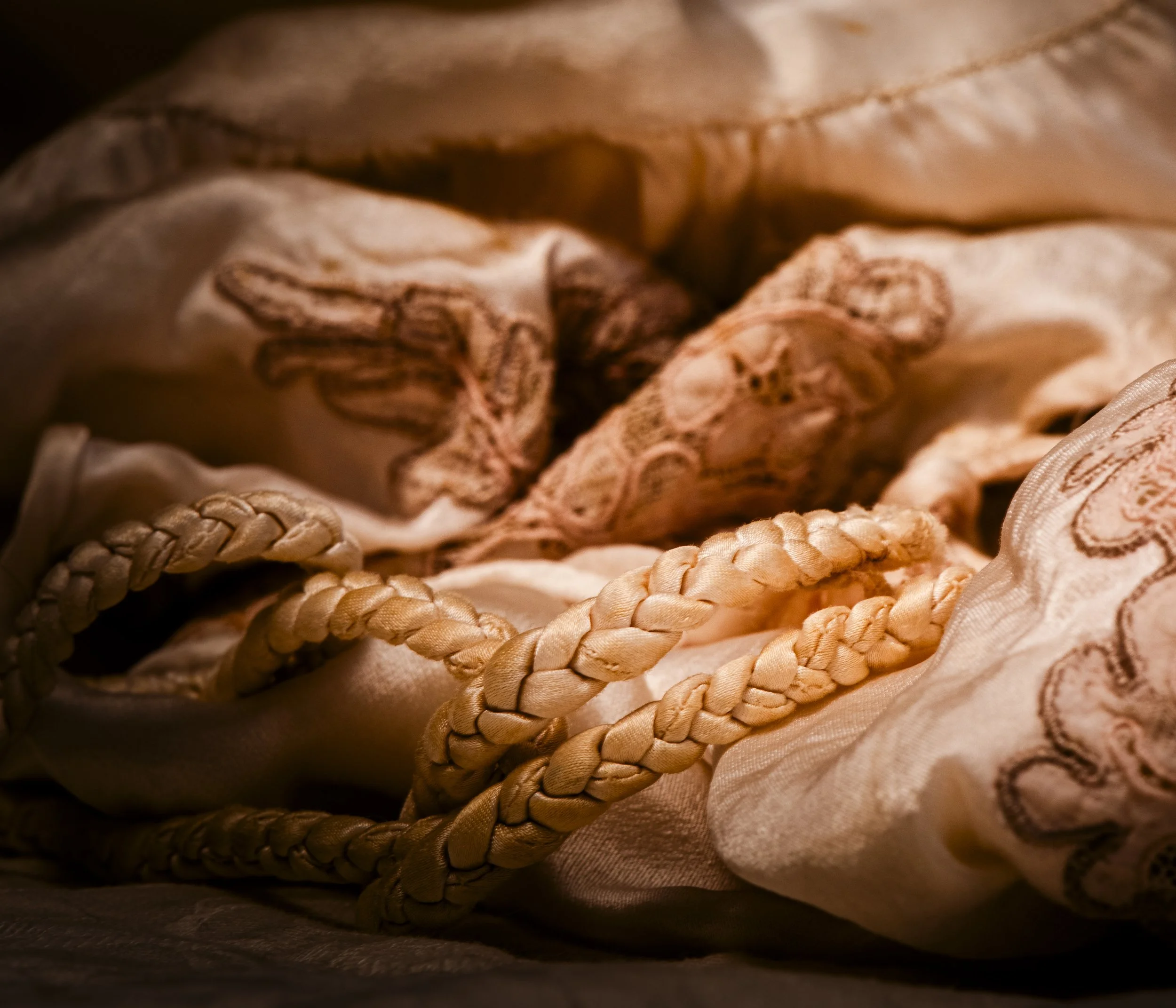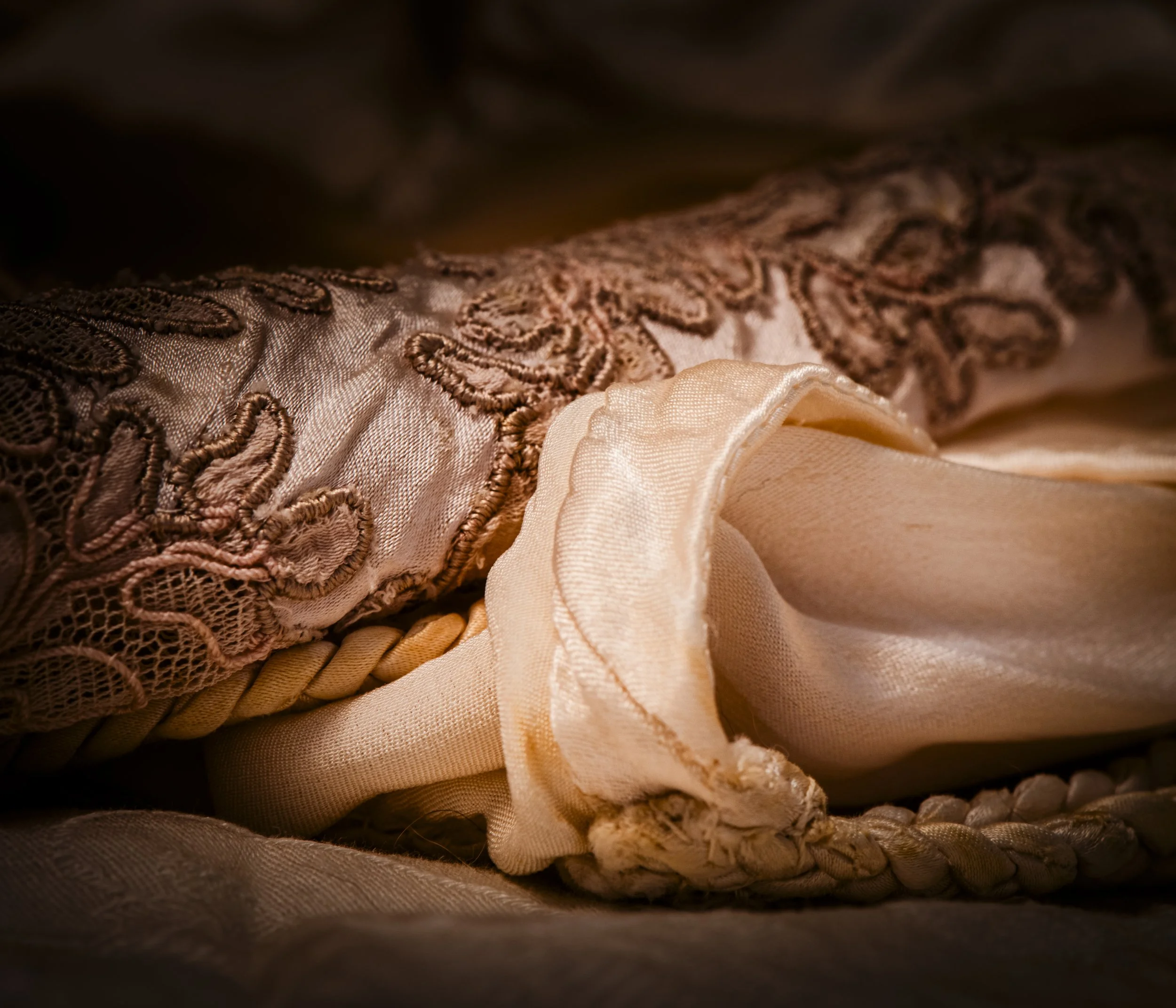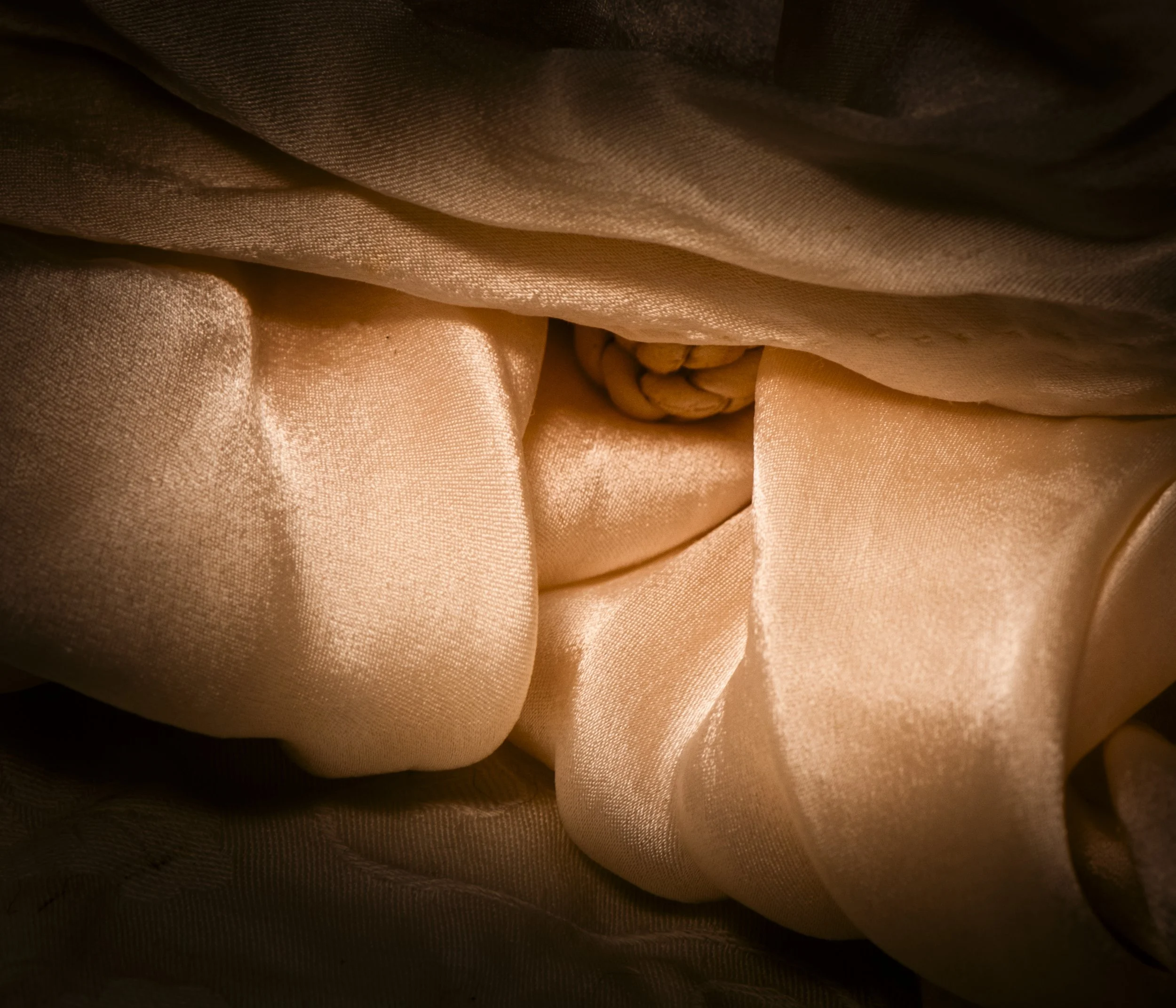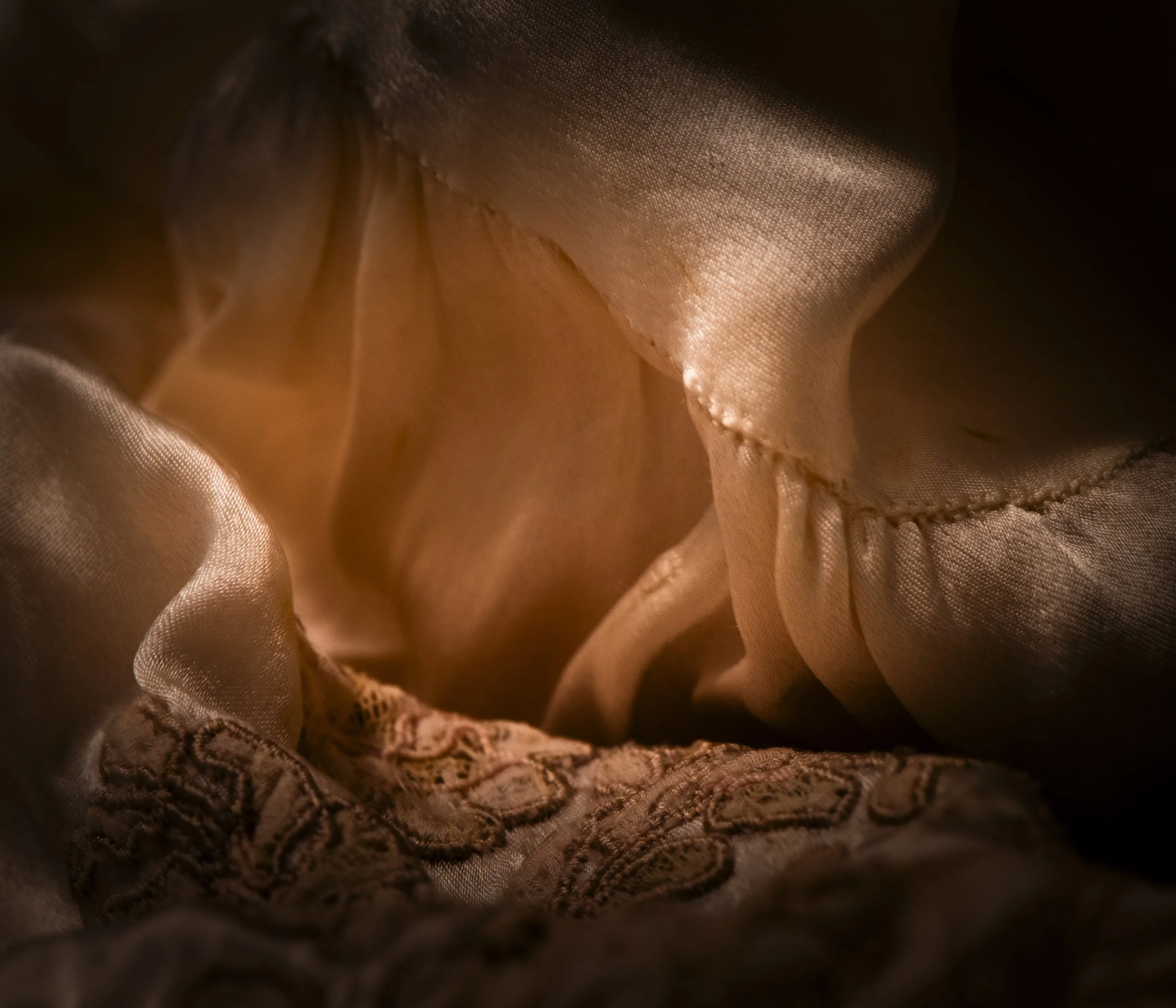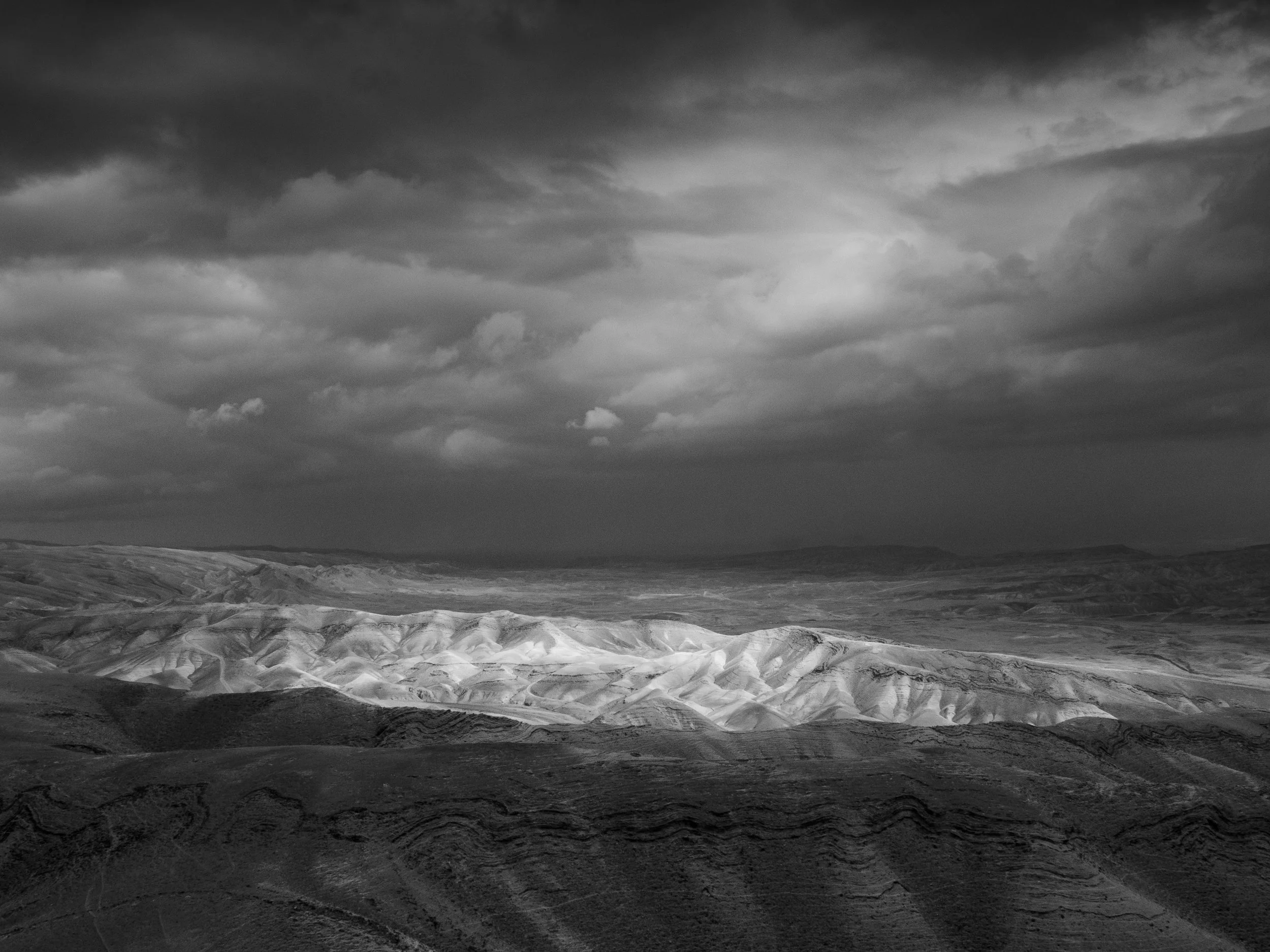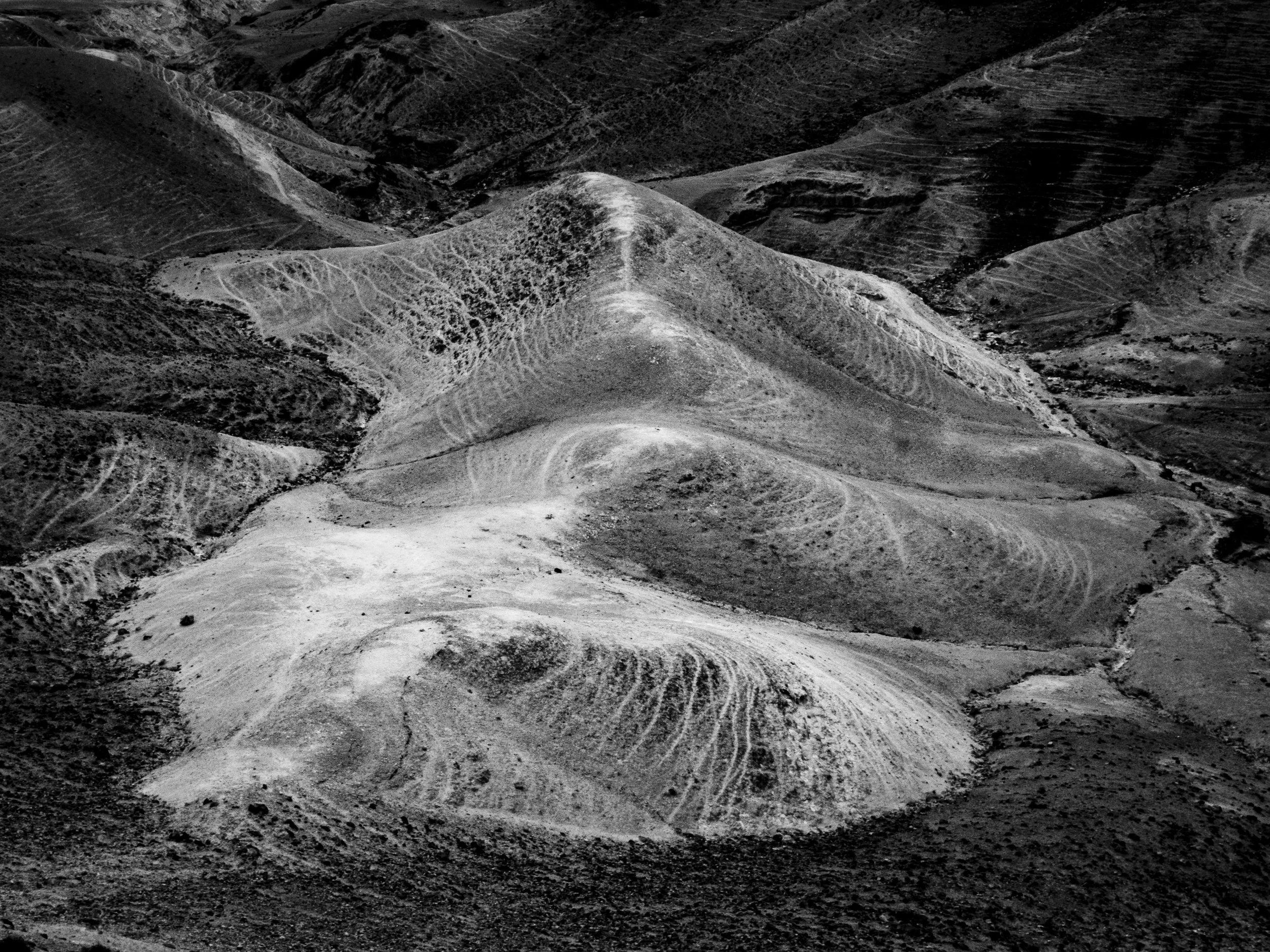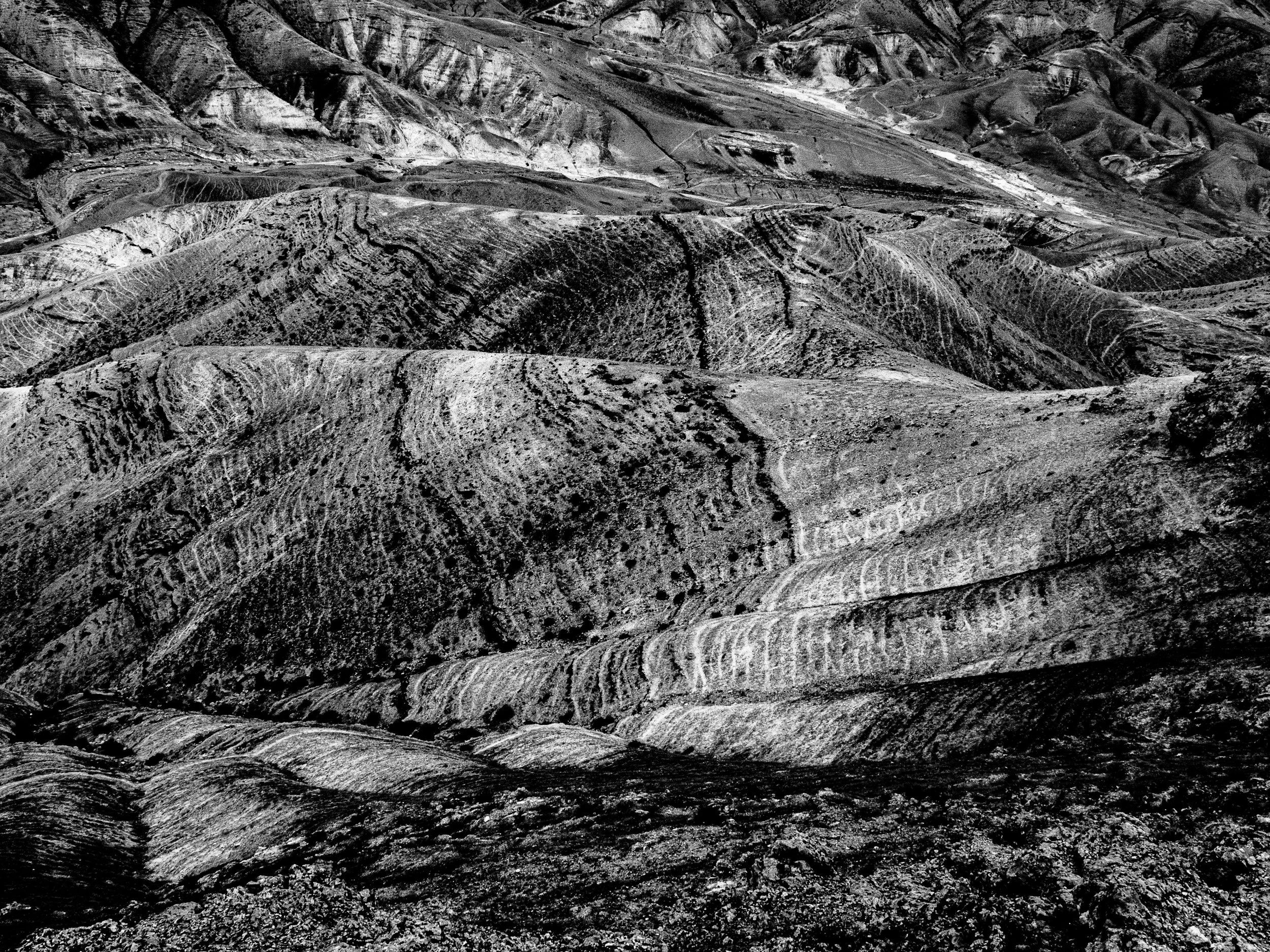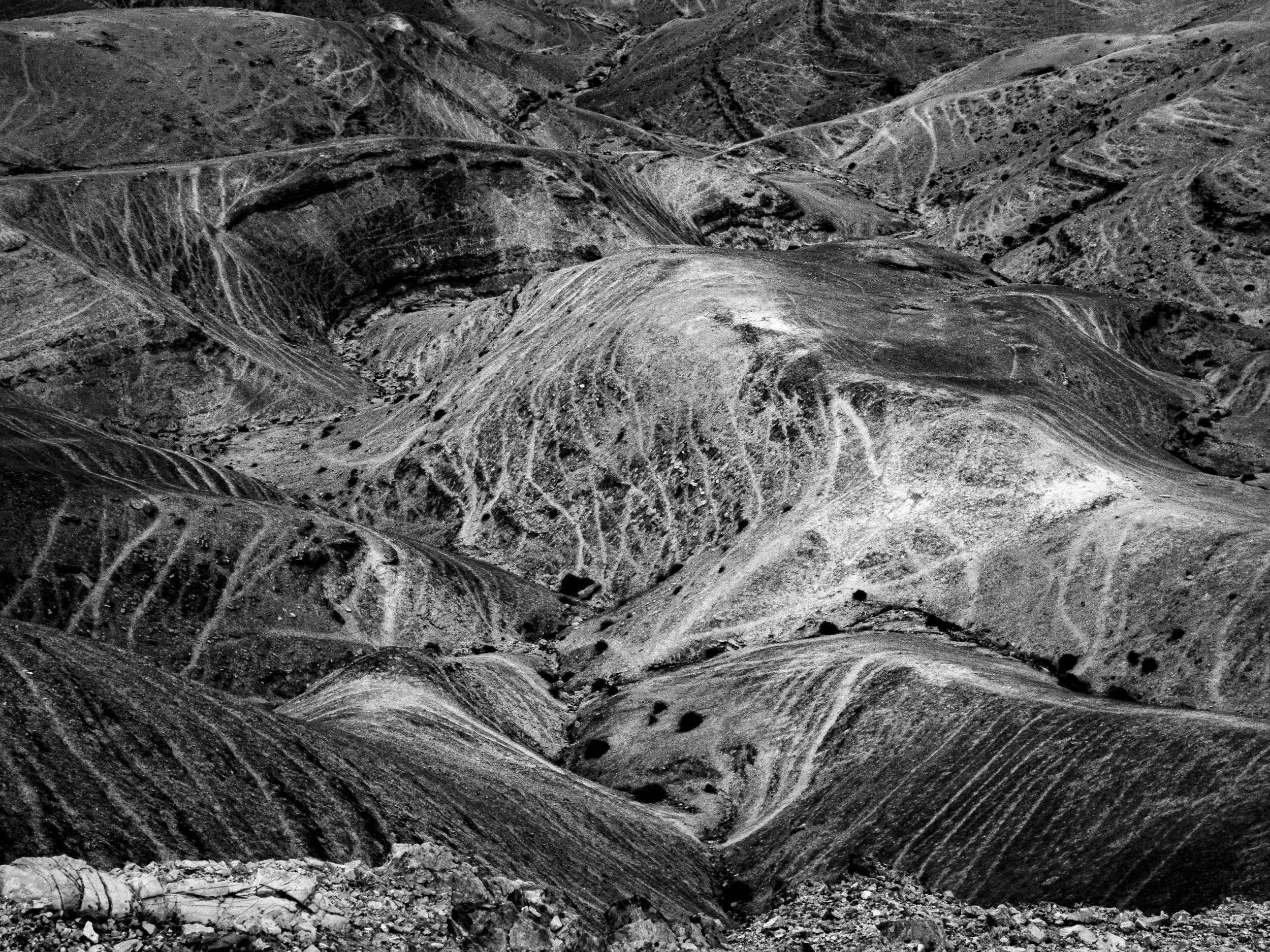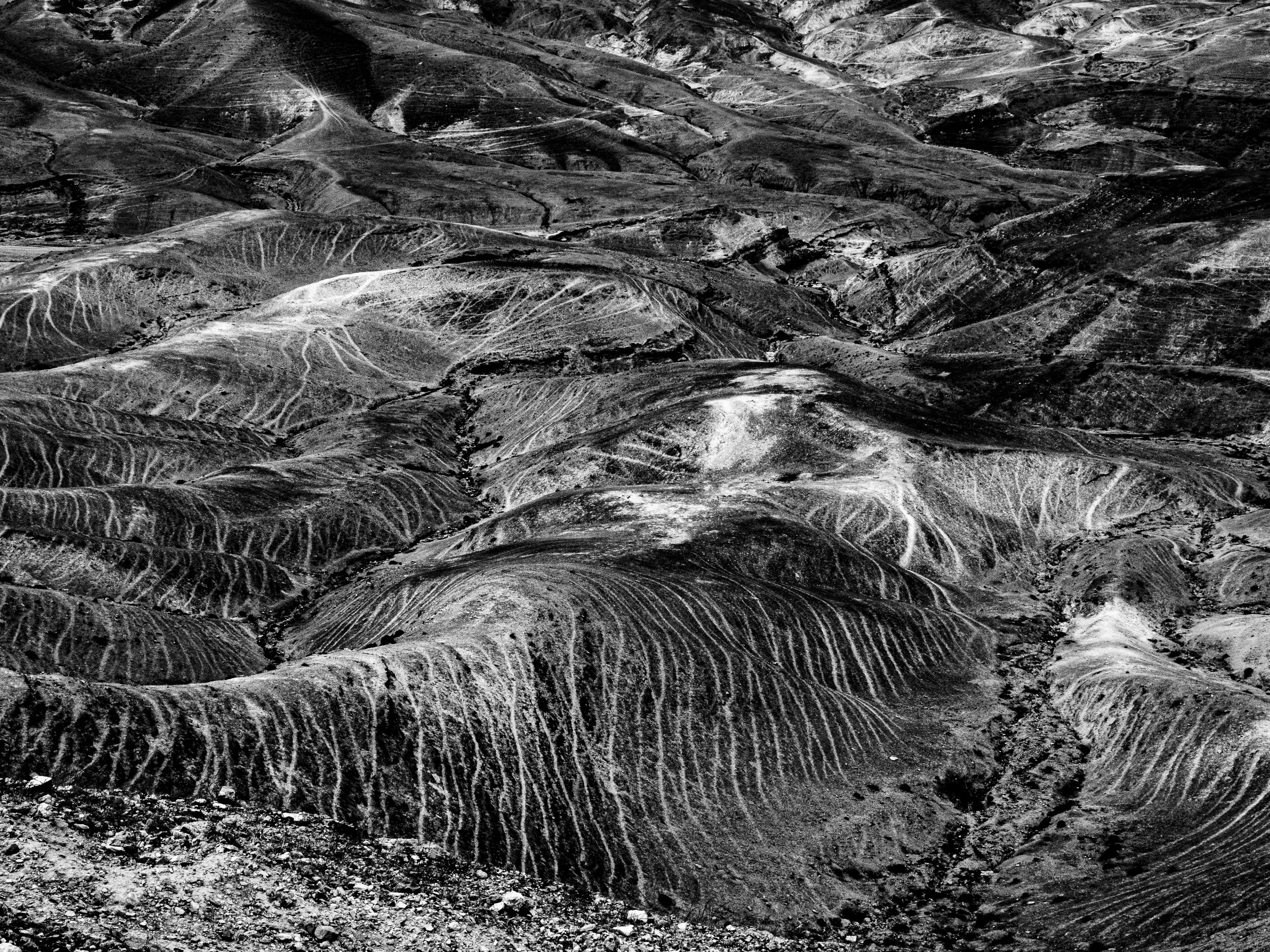A note about the Gaza war
Mother Tongue is a very personal exhibit - in complete dissonance with this time, one of the bloodiest for both Israelis and Palestinians. Indeed, I began to work on this exhibit in the summer of 2023, but the intimate subject lost all meaning after the carnage of October 7 and of the Gaza war, and I entered a period of deep paralysis.
Little by little, I started to dive into writing the texts of this exhibit and photographing my mother’s treasures with which I had returned from the island of my birth. It is what kept me above water when the world around us was sinking, and during a difficult year on the personal level as well. Precisely the search to reconnect to my mother tongue, to find the place in which my creativity can take root and grow, is what gave me back my strength.
On second thought, perhaps the exhibit is not divorced from our current reality after all, as it asks, what is my place in this country? A question that becomes more and more difficult to answer
**********************************************************************************************************************
Papiandu Papiamentu – לדבר פאפיאמנטו Speaking Papiamentu
The silencing of our mother tongue – whether by legal restrictions, cultural dominance, or, in my case, the absence of other speakers - means losing an essential part of ourselves, our life-force, our eros. It is the painful predicament of many of us immigrants, and of other uprooted people, when a primal part of us does not come to expression and cannot give birth to our creative selves. No wonder the word for uprooted in Hebrew, עקור, also refers to barrenness.
Unlike the popular song by Shlomo Ydov, I do not even dream in my mother tongue, in my case Papiamentu, the language spoken on the Dutch Caribbean island of Curaçao. This part of me is totally absent in my life in Israel, where I have nobody with whom to speak my language – as far as I know, I am the only Papiamentu speaker in Jerusalem. And so, as soon as I return to Israel after visiting my family, I stop living in Papiamentu. Nobody here knows that part of me.
When I asked my friend Sara, what it felt like to live in a country where French, her mother tongue, is not spoken, she answered that language is a home you can take with you to wherever you go. She has her French-speaking relatives and enjoys movies and books in French. For me, Papiamentu cannot possibly be a home away from home – without an expatriate community with which to connect, when my mother tongue has fewer than 300,000 speakers and none of them can be found in my immediate vicinity and when the phone connection to that distant country that nobody else here calls, had until recently been outrageously expensive.
I cannot even find solace in writing my mother tongue, since Papiamentu, at least for me, is not a written language – Dutch was the language of instruction in our schools. The orthography of Papiamentu was only formalized after I left the island, and I still find it strange to read, with its strict phonetic spelling, so that words originating from Spanish, Dutch or English are written very differently from their correct spelling in those languages.
Feeling that Curaçao means nothing to those who have never lived there and who do not know my language, I do not dwell on my background – I do not talk about where I come from. I am not willing to play the role of an exotic bird from a little island in the Caribbean. On the other hand, I refuse to be thrown into better-known categories, such as “Argentinean”, sharing little with South Americans – other than their music and dance – as I started to learn Spanish only in sixth grade, and unlike English, it always remained a foreign language to me.
And so, rather than allowing myself to feel the loneliness, I let that part of me go – I have erased it. It is a part of me that I do not speak about if I cannot speak from it. I do not even miss my Papiamentu-speaking-self when away from the island. I do not live with a sense of loss, longing for a vanished childhood, for a hidden identity, for my language as a home. Until recently, I did not realize that I have been paying a price for the erasure of such a central part of who I am. Rather than being a stranger to those around me, I was a stranger to myself.
It is, perhaps, because I am not an exile that I do not feel that sense of loss – I have had the privilege to return to Curaçao frequently since moving to Israel. Or rather, I do not believe I deserve to indulge in a feeling of loneliness, after all, I left my native country voluntarily to study abroad, knowing, in advance, I would never return to live. I am not like the homeless, the displaced, the refugees who were forced to abandon their home and language.
Perhaps I can speak of a sense of self-exile, as I did not find my place in the complex colonial society of the island, with its racial, class and gender segmentation and hierarchy, its strict internal borders, that kept in their place all those who were not considered white, as well as women from all social groups. Only white men had the freedom of movement. Only white men were not silenced. And so, even when living on the island as a high school student, I developed a critical understanding of the society I was born in, where I refused to accept my place as a female member of a privileged class. I had already developed the outlook of the outsider.
It is this view of the world that prepared me to cross cultural and language borders without experiencing culture shock – to adopt English as my principal literary language with utmost ease when I went to college in the USA in the second half of the stormy sixties – a period that has consolidated my critical social consciousness. It is this outlook that enabled me to adapt to life in the multi-ethnic tapestry of Jerusalem in the early nineteen seventies.
Flying to Curaçao through Amsterdam, I start to shed the layer of my everyday life in Jerusalem, like a heavy spacesuit that cloaks my entire body and dictates my movements. It takes me a while to recognize that Papiamentu-speaking-self that is crammed inside, the way I think, twinkle my eyes, or dance the tumba in Papiamentu. I regain a visceral quality, not just a language – all those things that get lost in translation.
An American friend, on hearing me switch to Papiamentu while on the phone with one of my cousins living in Boston, exclaimed in delight: “you become a totally different person when you speak Papiamentu!” It was a moment of deep recognition, of acknowledgement. She was the first person who saw me, and her remark, like a paradigm leap, enabled me to see myself, and feel the person that I am, fully, with all my layers of language.
As I stand in line at the Amsterdam airport, with all the other Papiamentu-speakers, I start to reconnect with an inner core that I have denied myself all those years. Here, my body becomes infused by the music of the language – by juicy words like barbulète, kokolishi, warawara, maribomba that take me back to a childhood rich in fantasy, magic, and folktales. Just the sounds of those words make me dance.
Yes, there is a sense of coming home when I speak Papiamentu – a mother tongue is, after all, a home, but not one I can take with me to places where there are no other speakers. It is a home in the sense that it makes me whole again, that it fills me with the lifeforce of who I fully am.
And I ask myself, how can I speak, dance, my mother tongue, here, in Jerusalem?
***
E ta sa algu di mi - He Knew Something about Me - (my maternal grandfather, the photographer Benjamin Gomes Casseres) [2025, assemblage: six postcard size photos on top of a lace runner, draped over the horizontal surface of a plank, covered with glass]
***
Esta Bunita bo Ta – כמה יפה את How Pretty you Are
I found these pretty little dresses among my mother’s belongings after she passed away. White, meticulously hand-embroidered dresses with fine lace work and tiny mother-of-pearl buttons that a little girl must take care not to dirty or tear by climbing trees and running wild across the yard, something that was especially difficult for me, as one who preferred to play with the boys.
I must have worn these delicate dresses, with a ribbon in my hair. And as it goes in our family, my mother would have worn them too, and who knows, perhaps her mother as well. All three of us grew up in a macho Latino culture where a girl is kept in the house, taught to fear the outside world where friendly but devious men roam the street and will surely lure her with sweet words and a luscious shell, a kokolishi.
Esta bunita bo ta - How Pretty You Are (series) - archival prints, 2025,
Sekretu Konosí – סוד גלוי – תשובתי לאדוורד ווסטון Open Secret – Femmage to Edward Weston, 2025 photograph
******
top: Stroistu di flor, (na kasamentu di Finita) Flower Girl - (at Finita’s wedding)
bottom: Palu di koko - Coconut Tree, 2025, assemblages: (will be framed) - doilies with old photographs
*****************************************
E Trusó di mi Mama – הטרוסו של אמי My Mother’s Trousseau
After the funeral of my mother, who died in 2009 at the age of 96, I devoted the rest of my stay in Curaçao to clearing her closets, giving away most of her personal possessions. Wanting to keep something that would recall her physical presence, that was touched by her body, I returned to Israel with a few of her nightgowns and shawls, some of her jewelry, and her many evening purses – those impractical little handbags that women clutch in their hands and that cannot contain more than a handkerchief, powder compact and lipstick.
I see this collection as something of a trousseau, that in earlier times was given to the bride by her family to bring to her new home – fine tablecloths and bedlinen intricately embroidered or crocheted with lacy motifs – the painstaking work of women. Except it was now the daughter who brought these treasures to her own home and studio.
Born in Havanna, Cuba, to parents who had emigrated from the Curaçao Sephardic community, my mother’s mother tongue was Spanish. When my grandfather’s sugar business collapsed in 1929, my bankrupt grandparents were forced to return to Curaçao with their three Cuban-born children. At 16, my mother did not yet know Curaçao’s native language, Papiamentu – my mother tongue. She was an outsider, struggling to become accepted in the socially conservative and patriarchal Jewish community with its many rules and restrictions, especially for women.
I always felt my mother had given up a part of herself in these efforts. She missed the freedom she had in the Cuban countryside, during frequent visits throughout her childhood, but especially when the family’ had to move there, during their last two years on that island, in order to cut expenses when my grandfather’s sugar business began to fail. A freedom that ironically was at the expense of the impoverished sugarcane workers.
All her life, she longed for that time the family spent exploring nature on their many excursions, riding horses on the farm, and swimming in the sea - and she was an excellent swimmer, participating in competitions. At a time when, as a talented young painter, she dreamt of attending art school in Havanna, a dream that was shattered when the family returned to Curaçao.
It is this conflict that her ‘trousseau’ represents to me, as it expresses the feminine requirements of her new social milieu, and where she tried so hard to be accepted, perhaps to the point of silencing an essential part of herself, her soul. Happily, in later years, she learned to express her artistic talents through her photography.
Just as I have come to act out, perhaps realize, her dreams of becoming a serious swimmer, avid hiker and artist, I re-appropriate her ‘trousseau’ in my own art, the way I explore the curves and crevices of a desert landscape, subverting it in a painterly language of sensuality. A language that, for all the women in our circles, was forbidden.
**
Mama di Pèrla – אם פנינה Mother of Pearl - 2025, details of installation of three coffee tables draped with scarves, with shells, doilies, evening purses, my mother’s slides, photographs of her as a swimmer
*********************************************************************
Yapón di mi Mama
MY MOTHER’S NIGHTGOWN (series) - archival prints - 2024
*****************************************
Mi ta tende laman
I Hear the Sea (series) - archival prints 2023
Mi ta Tende Laman (series) – אני שומעת ים I Hear the Sea, 2023, archival prints (photographs of the Judean Desert)
**************************************************************************************************************
Baile Prohibí – ריקוד אסור Forbidden Dance
When Latin rhythms reach my ears – be it the Curaçao tumba, the Cuban salsa, or the Brazilian samba – my body cannot resist the urge to dance. And so, I let myself go to the sounds of the lambada at a women-only party thrown by my brother’s partner Michèle when I visited the island in January 2023, a party with her women friends and relatives from Curaçao’s diverse ethnic backgrounds – Afro-Caribbean, Dutch, Chinese, North American and myself, Sephardic Jewish.
The words of the Brazilian Lambada are not in Papiamentu, my mother tongue, but in Portuguese, one of the languages that Papiamentu is derived from. Researchers suggest that the language spoken by the native population of Curaçao, including its Sephardic Jews, was based on the broken Portuguese brought by enslaved Africans from different tribes, for whom the language of the slave traders became their lingua franca. Portuguese is also the language that my ancestors continued to speak for generations after they fled the Inquisition in Portugal, and which is still used for certain prayers in the Snoa, our historic Curaçao synagogue. This too influenced the development of Papiamentu.
This is not how I danced when I lived on the island, and I was forbidden to dance with boys not considered white before the boundaries between social groups started to blur. Growing up in a strict, patriarchal and colonialist society that kept women and non-whites in their place, I did not dare to dance to the African rhythms of the tumba or samba like this - even though I was dying to, instead I danced a graceful but stoic ballet. At dance parties in my teenage years, anything other than chaste, restrained movements was frowned upon. For what would people say?
I had to leave the island to unleash my deepest life-force. I knew I had it in me. Returning, after many years, I am finally free to dance in my native tongue – no matter if the words of the song are in Spanish, Portuguese or Papiamentu.
***
